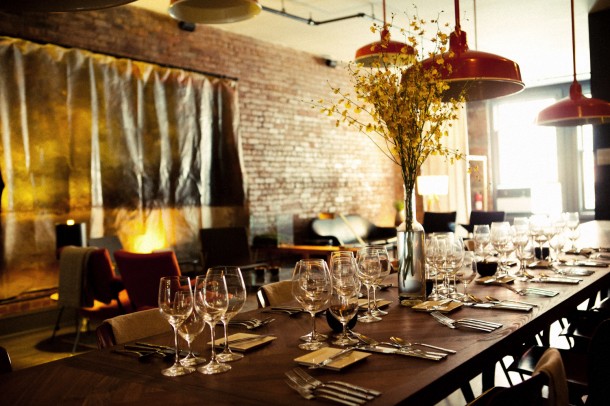
Food writing is a coveted job among culinary fanatics across the nation. I mean, who hasn’t picked up a copy of Bon Appétit or pulled up the New York Times food blogs and thought, wouldn’t it be great to get to eat all the time and tell people about it—as my job?
I’ve been lucky enough to be in the business of food writing for 10 years. Currently, I work for Tasting Table, a free daily email publication that delivers the best of food and drink culture to adventurous eaters across the country. I’ve worked for the company for three years, first as the Editor of the San Francisco city edition and now as Senior Editor.
My day-to-day job involves top-editing much of the content that our editorial staff produces—including five city editions (Miami, New York, San Francisco, Chicago, and Los Angeles), a national edition, a spirits-focused edition, called Top Shelf, our healthy living edition, Good Taste, our Chefs’ Recipe edition, and Sous Chef Series, which focuses on up-and-coming chefs. And while it’s clearly not all eating—yes, I do a lot of hard work, too—the perks are fantastic (like getting to test amazing recipes in our New York test kitchen and eat at new restaurants on a regular basis).
I get emails every week asking for career advice from people who are looking to break into food writing. If you think this might be the career for you, read on for my advice for making it happen.
Diversify
It’s no longer enough to be a good writer. There are lots of good writers in the world, so succeeding in this business means that you have additional skills—ideally, many. Those skills might include a deep knowledge of food that you acquired while working in a specialty food shop, superior photography skills, an understanding of content management systems, or cooking skills—all of which are very relatable skills in today’s job market.
So, get experience in the food industry in any way you can. A job at a farm or a grocery store might not seem as though it has all that much to do with food writing, but by enriching your base of experience, you’re gaining relatable, real-world experience that—if nothing else—will give you something to write about. If you want to write about restaurants, for example, it never hurts to work in them first. If you think you want to develop recipes, get some hands-on food experience in a kitchen.
Believe in Digital Media
For a long time now, print publications have been considered the ultimate job for food writers. Not only are those jobs scarce, but they’re no longer the only positions for people who want to write about food for a living. Digital publications, apps, and websites are only getting better, and there’s plenty of evidence to suggest that people consume the majority of their media on handheld devices (this includes recipes, too). So, instead of focusing your job search on a handful of print publications, look to the web.
Be Persistent, But Not Annoying
I’ll never forget when, as a fledgling food writer, a friend put me in touch with a very well-known food editor. When I spoke with him on the phone, he was nothing but discouraging. “There are no jobs,” he said flatly.
Rather than discouraging me from pursuing my career, his “reality check” galvanized me to work harder. I kept a paying job for years and wrote on the side to gain experience until I finally landed a staff job at a magazine. In other words, I did not give up. But I did broaden my own experience, cast the net farther toward all sorts of different publications, and kept a full-time job for financial security until I had enough experience to land a staff position writing exclusively about food.
Remember, though, that there is a fine line between being persistent and being annoying. By all means, reach out to people you admire and ask them to share their words of advice. But don’t pester them or beg for a job. And if someone helps you or shares his or her valuable time with you, send a thank-you note. A real one. On paper.
Work With Good People
You won’t be able to land your dream food-writing job right out of the gate, but the food industry is a huge, diverse business and there are many things you can do within it. Find companies you admire and individuals you look up to and ask them to teach you. Whether you connect with a small-scale cheesemaker with a stellar reputation, a forager with a roster of top-chef clients, or a CEO with an MBA who is starting a food-focused startup—these personal connections are the lifeblood of the food (and writing) industry.
I was lucky to meet and work with Margo True, the food editor at Sunset, when she first took the job after years working at Saveur and Gourmet. She really supported me early in my career and let me do a lot of interesting stuff as an editorial assistant. My first boss out of college, Ihsan Gurdal—the owner of Formaggio Kitchen in Cambridge, MA—taught me to really appreciate food and introduced me to so many different ingredients and interesting producers. He really cared about the story behind the food, and that stuck with me.
That said, don’t work with someone solely because you want the connections. Choose people whose work you like and admire and whom you enjoy spending time with. It’s still a job, after all, and you want to get something more from it than simply a connection.
Finally, remember that food writing is a job like any other. Sure, it has its perks, but it takes hard work to get there and even harder work once you make it. But if it’s the path for you, that work is all worth it.

